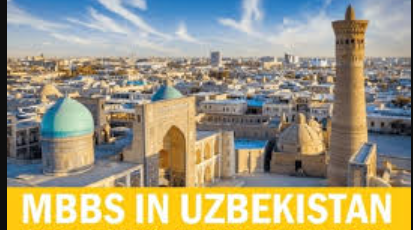For students aspiring to pursue a career in medicine, the decision of where to study MBBS is a crucial one. While many students look towards countries like India, the Philippines, or Russia for their medical education, some may consider Uzbekistan as an option. However, it’s important to be aware of the disadvantages of studying MBBS in Uzbekistan in 2024. In this blog post, we will discuss the 7 key disadvantages that students should consider before making their decision.
Language Barriers
One significant hurdle in studying MBBS in Uzbekistan is the language barrier. Most medical universities there teach in Uzbek or Russian. This can be tough for international students who don’t speak these languages. Struggling to understand lectures, communicate with patients, and do homework can slow down your learning. This language challenge makes it harder to do well in your studies and fully grasp the medical knowledge you’re there to learn.
Quality of Medical Education
The quality of medical education in Uzbekistan varies across institutions. While some, like the Tashkent State Dental Institute and Samarkand State Medical Institute, have established reputations, not all schools meet the same high standards.
This inconsistency can impact the depth and breadth of knowledge and training students receive, making some graduates less prepared than their counterparts from more accredited universities worldwide. It’s crucial for prospective students to research each university’s accreditation and educational quality before committing to a program, ensuring their degree will equip them with the necessary skills for a successful medical career.
Limited Clinical Exposure
Getting hands-on experience in hospitals and clinics is a big part of learning to be a doctor. However, students who go to Uzbekistan for their MBBS might find there aren’t as many chances to work directly with patients. This could be because there aren’t enough places in hospitals or clinics for students to practice, or there might not be enough patients for everyone to get a good learning experience.
This makes it hard for students to use what they’ve learned in books in real-life situations, which is key for becoming a skilled doctor. Without enough clinical exposure, students may find it challenging to develop the practical skills they need for their future careers in medicine.
Recognition of Degree
The value of an MBBS degree from Uzbekistan might not be the same everywhere. Different countries have their own rules about accepting medical degrees from abroad. This means if you get your MBBS in Uzbekistan, you could face difficulties when trying to work as a doctor in your home country or other places.
Before choosing to study there, it’s smart to look into how these degrees are seen and what you might need to do, like extra exams or certifications, to work as a doctor elsewhere. This step is key to making sure your medical degree opens doors for you in the future.
Cultural Adaptation
Moving to a new country to study can be exciting but also challenging, especially when it involves adapting to a different culture. For students going to Uzbekistan for their MBBS, understanding and getting used to local customs, traditions, and the everyday way of life can be tough. This can make students feel out of place and impact their happiness, friendships, and how well they do in school. Adapting to a new culture takes time and patience, and it’s a crucial part of the journey for international students in Uzbekistan.
Infrastructure and Resources
When it comes to learning how to be a doctor, having access to the right tools and facilities is super important. Unfortunately, some students who choose to study MBBS in Uzbekistan might find that the schools there don’t always have the latest medical equipment or the best facilities for research and hands-on training.
This means they might not get as many opportunities to work with up-to-date technology or to practice their skills in the best possible environment. Think of it like trying to become a top chef but having to work in a kitchen that doesn’t have all the fancy gadgets or enough pots and pans. It’s doable, but definitely not ideal. This gap in resources can make it harder for students to get the high-quality education and experience they need to succeed in the medical field.
Financial Considerations
Taking the step to study MBBS in Uzbekistan means you’ll also need to think about money matters. Even though you might save on tuition fees compared to studying in other countries, there are more expenses to keep in mind. Living in Uzbekistan, you’ll have to pay for your own housing, food, traveling around, and even medical care if you need it.
These costs can add up, making it important to budget wisely. Before diving into this big adventure, make a plan for how you’ll handle these extra expenses. This careful planning can help you focus on your studies and enjoy your time in Uzbekistan without constantly worrying about money. Remember, being financially prepared is just as crucial as being academically prepared when embarking on your MBBS journey abroad.
Wrapping up
Choosing to pursue an MBBS degree in Uzbekistan is a decision that requires careful thought due to the challenges outlined earlier. Issues like navigating a new language, varying levels of educational quality, restricted hands-on medical practice, the global acceptance of your degree, adapting to a different culture, limited access to modern medical facilities, and managing living costs are significant.
These factors play a crucial role in shaping your medical education and future career. It’s essential for students to weigh these considerations and conduct thorough research on their chosen institution in Uzbekistan. Preparation and a clear understanding of what to expect can help mitigate some of these challenges. Making an informed decision will ensure that you are ready for the journey ahead, both academically and personally, as you embark on the path to becoming a doctor.

